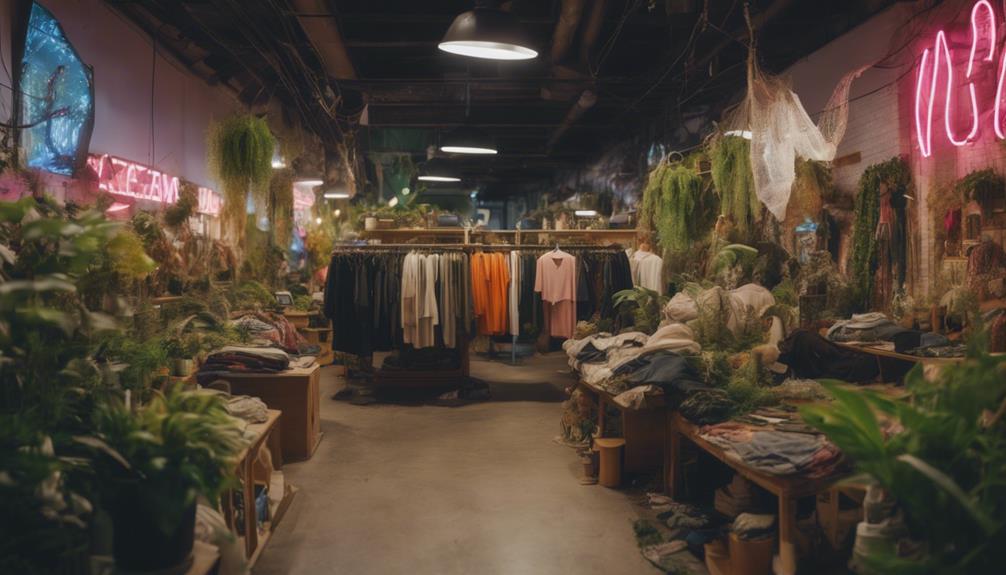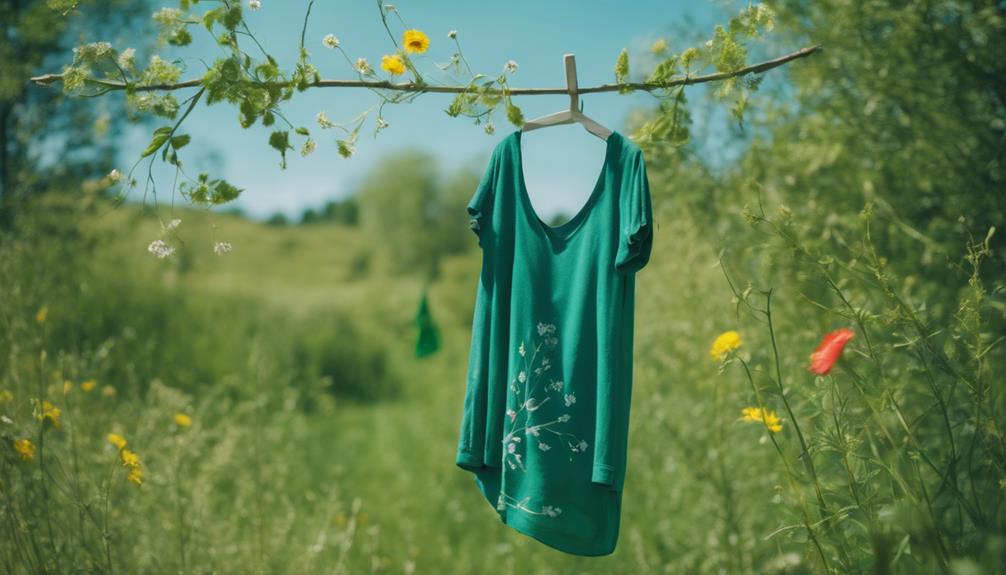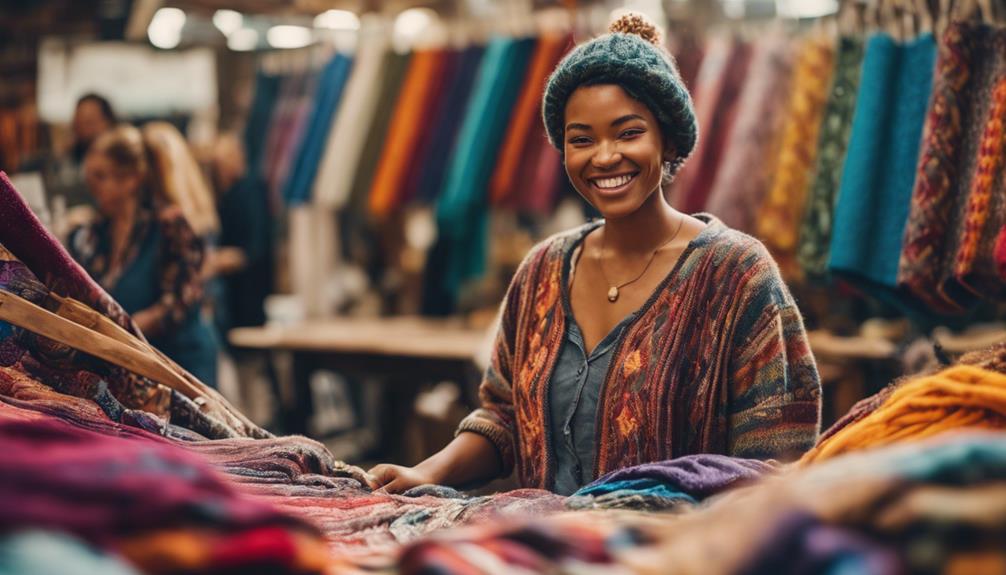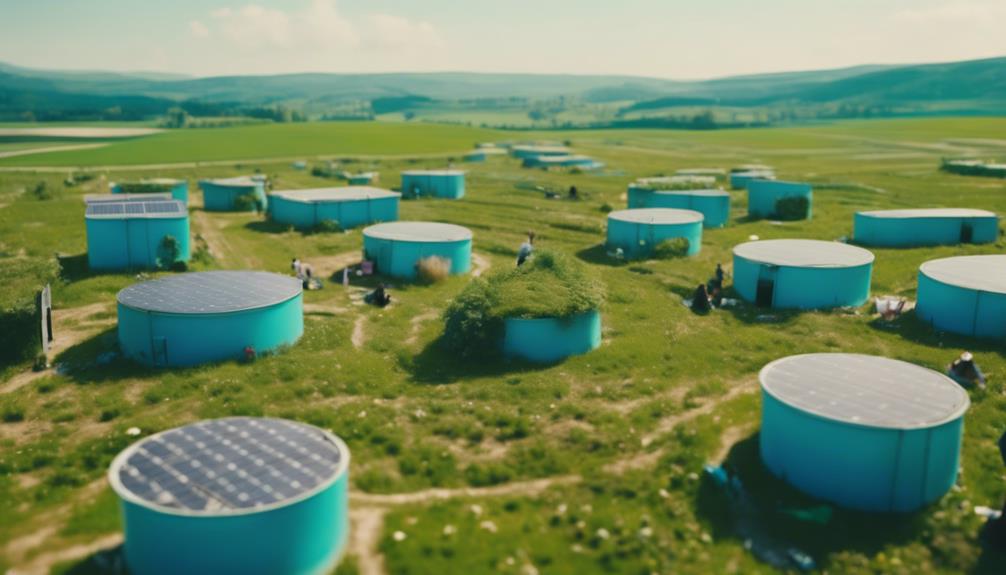Sustainable fashion has the power to transform the industry, and you will be impressed by its effects. By giving importance to ethical production and eco-friendly materials, it helps decrease the fashion industry’s carbon footprint, which contributes to 10% of global emissions. This method promotes social responsibility by ensuring fair wages and safe working conditions for employees. Opting for sustainable options encourages consumers like you to prioritize quality over quantity, leading to reduced waste and longer-lasting clothing. Additionally, it supports local economies and craftsmanship. Embracing sustainable fashion not only benefits the environment but also empowers communities and drives significant change. There is much to learn! Key factors in sustainable fashion, such as transparency in the supply chain and the use of innovative, low-impact production methods, can be found here. Brands that focus on these aspects not only lessen their environmental impact but also serve as a positive example for the industry. By selecting sustainable fashion, you are backing a move towards a more responsible and thoughtful approach to garment production, one that takes into account the social and environmental consequences of each choice. This is an exciting moment to be part of this movement, as more brands and consumers unite to create a meaningful impact. Visit here for more on the key factors in sustainable fashion: Key factors in sustainable fashion.
Key Takeaways
- Sustainable fashion reduces the fashion industry's contribution to global emissions by prioritizing eco-friendly materials and ethical production practices.
- It promotes responsible consumption, encouraging consumers to value quality over quantity and reduce waste through longer-lasting garments.
- Ethical labor practices ensure fair wages and safe working conditions, enhancing social equity within the garment workforce.
- Supporting local economies through artisanal brands fosters community engagement and preserves cultural heritage while minimizing environmental impacts.
The Definition of Sustainable Fashion
Sustainable fashion refers to clothing and accessories that focus on ethical production practices and eco-friendly materials, aiming to lessen the fashion industry's impact on the planet. This movement emphasizes responsible consumption, encouraging you to prioritize quality over quantity. By choosing sustainable fashion, you're supporting designs that are durable and timeless, which helps reduce waste and encourages longer usage.
Sustainable fashion encompasses various approaches, including slow fashion and circular economy principles. These methods aim to create a system where resources are reused and recycled, contrasting sharply with fast fashion's throwaway culture. Fast fashion contributes greatly to global emissions and environmental degradation, accounting for a staggering 10% of total emissions and a large share of industrial water pollution.
You can make a difference by opting for brands that prioritize ethical production practices and environmentally friendly materials. This shift not only supports a healthier planet but also promotes a more sustainable industry overall.
Comparing Sustainable and Fast Fashion

When you compare sustainable and fast fashion, you'll quickly notice the stark differences in their environmental impact and production ethics.
Fast fashion prioritizes speed and quantity, leading to considerable waste, with 60% of clothing ending up in landfills within a year. This model contributes heavily to global emissions, accounting for up to 10% of total emissions.
In contrast, sustainable fashion brands focus on creating quality garments that last, promoting ethical practices and encouraging consumers to buy less but better.
With the average consumer's clothing utilization dropping by 36% over the past 15 years, sustainable practices advocate for circular fashion, recycling, and upcycling to extend garment life cycles. Additionally, while fast fashion often uses hazardous chemicals that pollute our water, sustainable brands opt for biodegradable materials and eco-friendly dyes, markedly reducing environmental harm.
There's also a growing consumer willingness to invest in sustainable fashion, with research showing that 66% of consumers are prepared to pay more for ethical options. This shift highlights a desire for meaningful change in the fashion industry, showcasing how sustainable fashion can lead to a more responsible and eco-conscious future.
Environmental Benefits of Sustainable Fashion

The environmental benefits of adopting sustainable fashion practices are profound, as they markedly lower global emissions and reduce pollution in our water systems.
The fashion industry contributes up to 10% of total emissions, but by choosing sustainable options, you actively help to diminish this impact. Sustainable fashion prioritizes the use of biodegradable materials and recycled fabrics, which are essential in combating the 20% of global industrial water pollution linked to the sector.
When you opt for sustainable clothing, you're often selecting longer-lasting garments. This choice not only reduces the frequency of purchases but also minimizes waste, as 60% of clothing items are discarded within a year.
Additionally, sustainable practices like eco-friendly dyes and renewable resources lessen the release of harmful chemicals that threaten our ecosystems.
Social Impact and Worker Rights

While reducing environmental harm is essential, addressing social impact and worker rights in the fashion industry is equally important for creating a truly sustainable future.
Sustainable fashion prioritizes ethical labor practices, guaranteeing that everyone involved in the garment workforce receives fair wages and works in safe conditions. This movement not only improves the livelihoods of workers but also tackles inequalities that often plague the industry.
By advocating for gender equality, sustainable fashion provides equal opportunities for women, who represent a significant portion of the garment workforce. When you support brands that embrace these values, you're contributing to economic stability in garment-dependent regions, allowing workers and their families better access to education and healthcare.
Moreover, ethical brands promote transparency and accountability within their supply chains. This openness helps build consumer trust and guarantees that workers are treated humanely, free from the hazardous conditions typical of fast fashion.
Ethical Considerations in Fashion

When you shop for clothing, consider the transparency behind production processes and the treatment of workers.
Ethical fashion isn't just about trendy designs; it's about ensuring fair labor practices and safe working conditions.
Transparency in Production Processes
Transparency in production processes empowers you to trace material sources and labor practices, building trust and accountability in the fashion industry. When brands share detailed information about their supply chains, you can make informed choices that align with your values. This transparency is essential for fostering consumer trust and encouraging ethical practices in sustainable fashion.
Research shows that 66% of consumers are willing to pay more for products from brands that demonstrate this commitment to transparency. By openly addressing issues like labor exploitation and environmental degradation, companies not only promote a more sustainable industry but also enhance their brand loyalty. When you know where and how your clothes are made, it strengthens your connection to the brand.
In today's market, more shoppers are demanding ethical and eco-friendly options. Transparency in production processes gives brands a competitive edge by showcasing their commitment to responsible sourcing materials. As you support brands that prioritize transparency, you contribute to a fashion landscape that values ethical practices, ultimately benefiting the planet and society. Embracing this mindset empowers you to make positive choices in your fashion consumption.
Fair Labor Practices
Understanding the importance of transparency in production processes naturally leads to a focus on fair labor practices, which are essential for fostering ethical considerations in the fashion industry.
When you choose sustainable fashion, you're not just making a style statement; you're championing the rights of workers worldwide.
To truly grasp the impact of fair labor practices, consider the following key points:
- Equitable Compensation: Sustainable brands guarantee that workers receive fair wages, allowing them to thrive.
- Safe Working Conditions: Prioritizing ethical labor means providing safe environments, protecting workers from harm.
- Gender Equality: Sustainable fashion promotes equal opportunities for women, who make up a large portion of garment workers.
Consumer Awareness and Responsibility

In today's market, consumers increasingly demand sustainable fashion choices, reflecting a growing sense of responsibility towards ethical consumption. This rising consumer awareness has transformed the fashion landscape, with 71% of millennials prioritizing sustainability in their shopping decisions. You want to know that your purchases support eco-friendly practices and brands that demonstrate accountability through transparency in their supply chains.
As a consumer, you're not alone—66% of shoppers are willing to pay more for sustainable products, showcasing a shift towards valuing ethical fashion. This trend is bolstered by social media influencers who amplify messages about sustainability, making it easier for you to discover brands that align with your values. Their user-generated content promotes eco-friendly practices that resonate with a socially responsible audience.
Education plays an essential role in this movement. The more you learn about sustainability, the deeper your connection with brands becomes. By advocating for ethical consumption, you contribute to a culture that prioritizes social responsibility within the fashion industry. Your choices matter, and they can drive significant change, inspiring others to follow suit in making informed, responsible purchasing decisions.
Practical Tips for Sustainable Shopping

When you're shopping sustainably, start by researching brands that prioritize ethical practices and transparency.
Repairing and reusing items can greatly cut down on waste, so don't overlook the power of a little TLC for your clothes.
Plus, supporting local economies not only benefits your community but also helps reduce the environmental impact of shipping.
Research Ethical Brands
How can you make informed choices while shopping sustainably?
Researching ethical brands is key to understanding their production practices and making conscious consumer choices. Many consumers are willing to pay more for sustainable options, driving demand for responsible fashion.
Here are some practical tips to help you identify ethical brands:
- Look for Transparency: Ethical brands often provide information about their sourcing, labor conditions, and environmental impact.
- Check Certifications: Labels like Fair Trade or Global Organic Textile Standard (GOTS) indicate a commitment to sustainable and ethical practices.
- Use Ethical Fashion Directories: These resources guide you toward brands that prioritize fair wages and safe working conditions.
Repair and Reuse
Repairing and reusing your clothing not only saves money but also considerably reduces your environmental footprint. Did you know that extending the lifespan of your clothes by just nine months can cut their environmental impact by 30%?
Start by learning some basic repair skills to mend your garments instead of tossing them aside. This practice minimizes textile waste and promotes a culture of sustainability within the fashion community.
Consider engaging in clothing swaps with friends or local groups. These events give you a chance to refresh your wardrobe while promoting reuse and reducing the demand for fast fashion.
Upcycling is another creative way to breathe new life into old pieces; transform them into unique items that reflect your personal style without needing new materials.
Support Local Economies
Embracing sustainable fashion also means supporting local economies, which can greatly reduce your carbon footprint while fostering community growth. When you choose to shop locally, you not only help the environment but also make a significant impact on your community.
Here are some practical tips to get started:
- Buy from local artisans: This not only creates job opportunities but also sustains traditional craftsmanship.
- Look for materials: Seek out items sourced from nearby suppliers, which minimizes shipping emissions and supports local farmers.
- Attend community events: Participate in local clothing swaps or fairs to engage with sustainable practices and strengthen community ties.
Supporting Local and Artisanal Brands

Supporting local and artisanal brands not only boosts fair wages for workers but also strengthens the community's economic foundation. When you choose sustainable fashion, you're not just buying clothes; you're investing in artisans who use traditional techniques, preserving skills that might otherwise fade away. This support creates economic stability, empowering local economies and providing job opportunities that uplift entire communities.
By sourcing materials locally, you help reduce the carbon footprint associated with garment production, making a conscious choice for the environment. Supporting local brands fosters market competition, encouraging innovation and ensuring that artisans can thrive in a fairer fashion industry.
When you opt for handcrafted items, you're also promoting equitable working conditions. Fair wages lead to improved living standards for workers, which in turn enhances their access to education and healthcare. This ripple effect strengthens the community as a whole, creating a vibrant marketplace where creativity and craftsmanship flourish.
The Future of Sustainable Fashion

As you invest in local and artisanal brands, you're also paving the way for a future where sustainable fashion thrives through innovation and ethical practices.
With millennials increasingly prioritizing sustainability—over 70% of them consider it a key factor in their purchasing decisions—consumer demand for eco-friendly products is reshaping the industry.
The future of sustainable fashion hinges on several vital elements:
- Innovative Materials: Adoption of biodegradable fabrics and recycled textiles will markedly reduce the environmental footprint of the fashion industry.
- Circular Economy: Embracing principles of recycling and upcycling is essential for brands wanting to remain competitive.
- Transparency and Accountability: Regulatory changes will demand greater transparency from brands, ensuring they uphold ethical practices.
Frequently Asked Questions
How Does Sustainable Fashion Help People?
Sustainable fashion helps you by ensuring fair wages and safe working conditions for workers, boosting local economies, promoting gender equality, preserving cultural heritage, and encouraging responsible practices. You support positive social change with every purchase.
What Are the Effects of Sustainable Fashion?
Sustainable fashion reduces pollution, conserves resources, and encourages ethical production. By choosing quality over quantity, you help decrease landfill waste and support practices that promote recycling, ultimately fostering a healthier planet for future generations.
Why Is Sustainable Fashion Important for the Future?
Sustainable fashion's essential for the future; it contrasts the fast-paced, wasteful industry. By choosing ethical practices, you not only reduce environmental harm but also support fair labor, creating a healthier planet and thriving communities for everyone.
What Does Sustainable Fashion Mean to You?
Sustainable fashion means making choices that reflect your values. It's about prioritizing ethical production, reducing waste, and supporting eco-friendly brands. When you embrace it, you contribute to a healthier planet and fairer industry practices.
Conclusion
As you've discovered, sustainable fashion isn't just a trend; it's a transformative movement.
Did you know that the fashion industry is responsible for 10% of global carbon emissions? By choosing sustainable options, you're not only reducing your environmental footprint but also supporting ethical practices and worker rights.
Embrace your power as a consumer; every purchase counts.
Let's champion a future where fashion is both stylish and sustainable, making a positive impact on the planet and its people.









